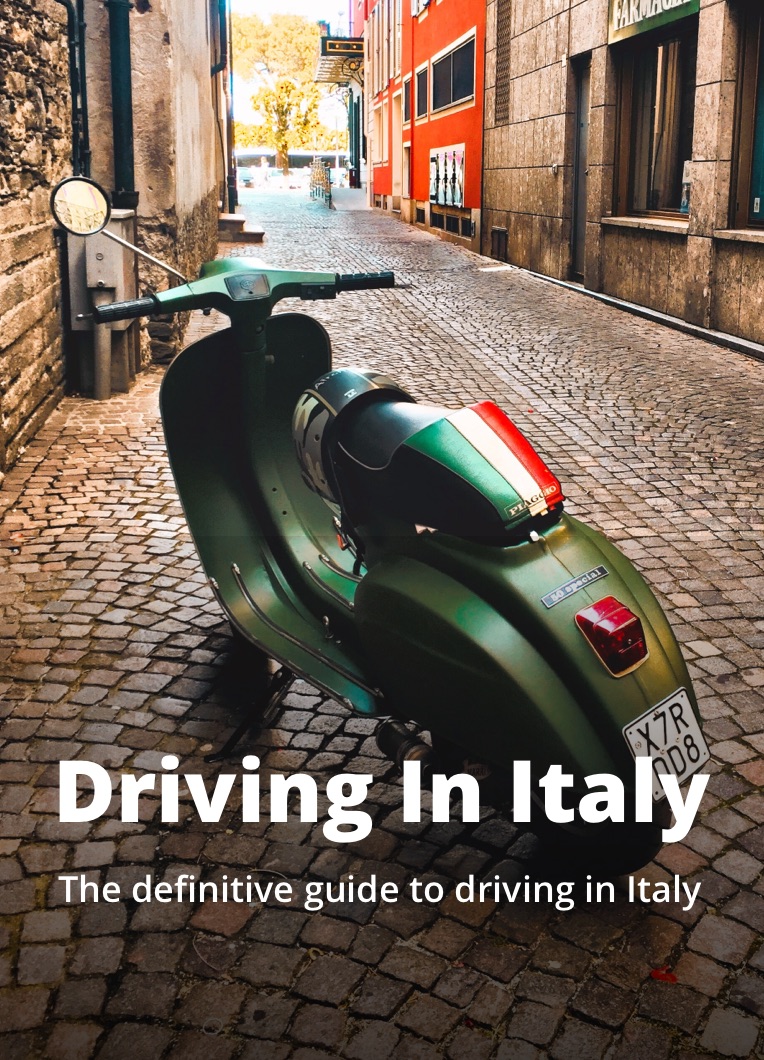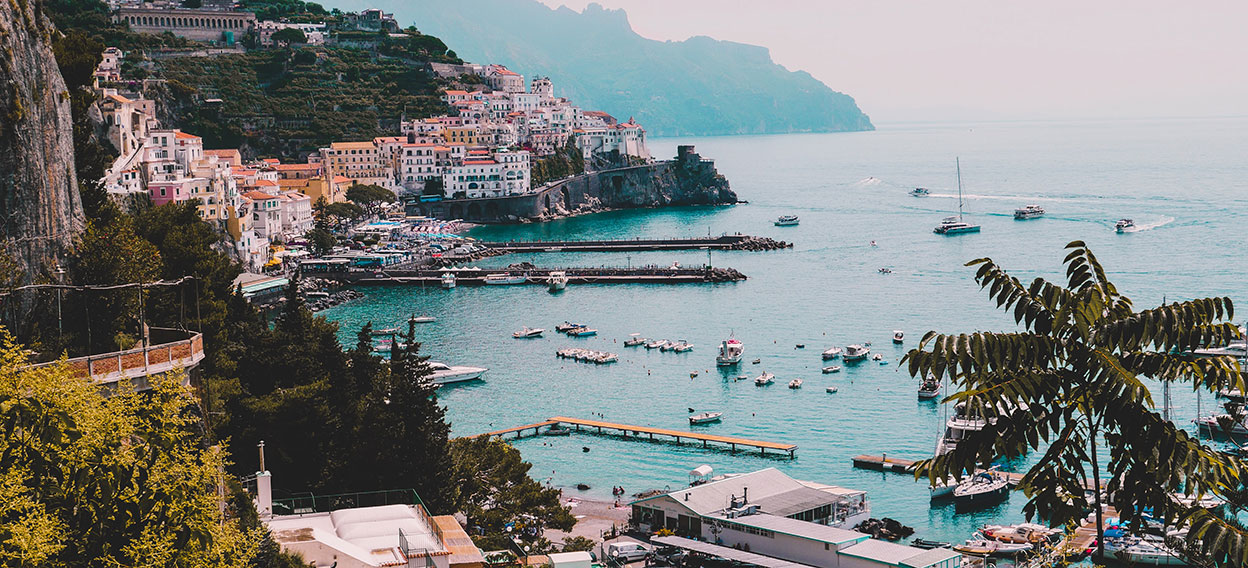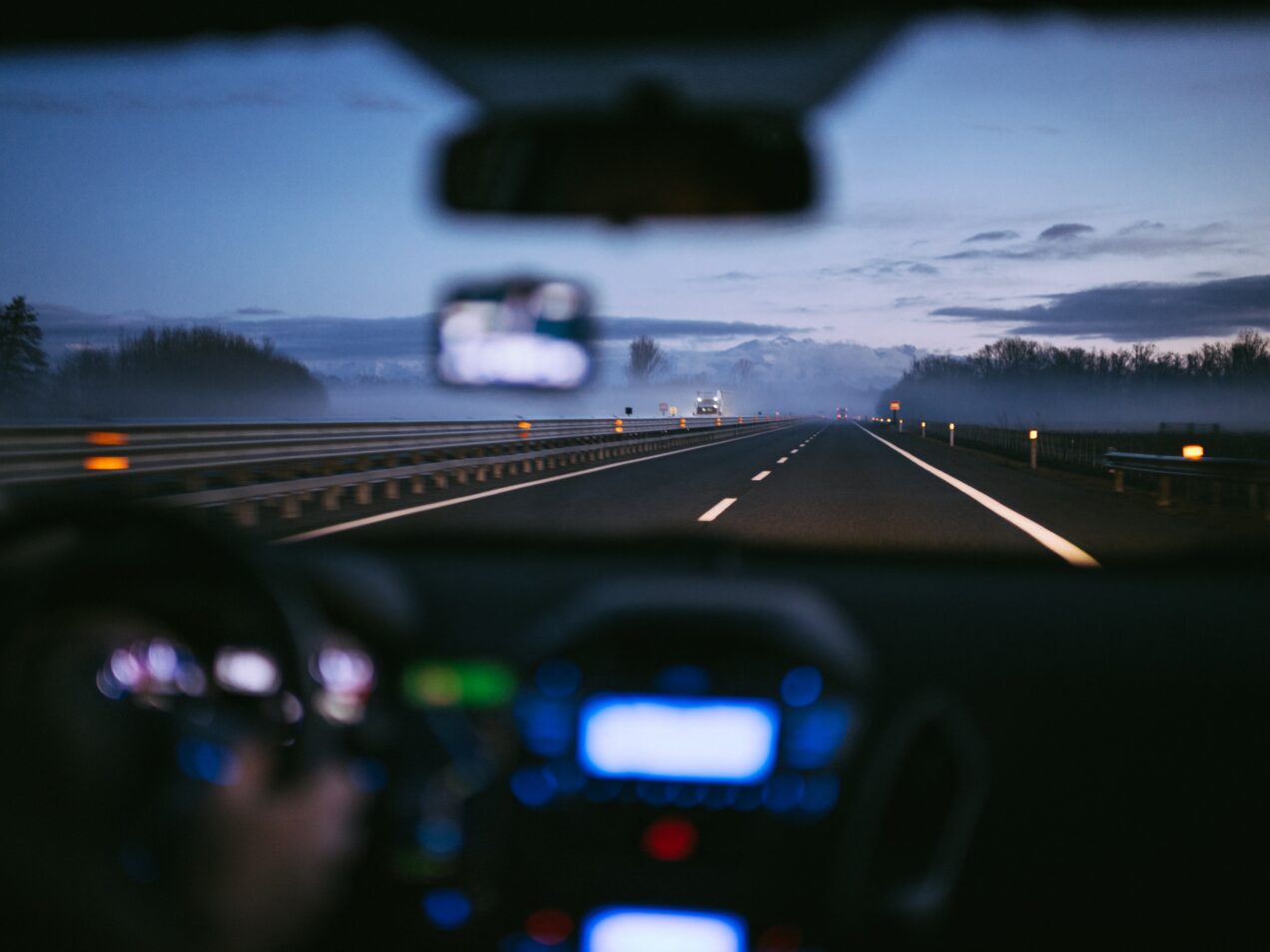
Tips on Driving Italian Autostrada (Toll Roads)
[Learn more driving Italian Autostrada tips with our Driving in Italy ebook, which you can download for free at the bottom of this page.]
A repeat client recently told me as we were planning their Italy trip, “We want to rent a car, but I didn’t enjoy driving Italian autostrada last time with the aggressive drivers that would come up inches from my back bumper. We’ll stick to the country roads this time.”
I would break down driving in Italy into 3 categories: driving in cities (not recommended); driving in the countryside; and driving on the Italian autostrada (the major toll highways or motorways). If you’re planning to drive in Italy, here’s what any foreign traveler should know about the autostrade:
Autostrade are toll roads
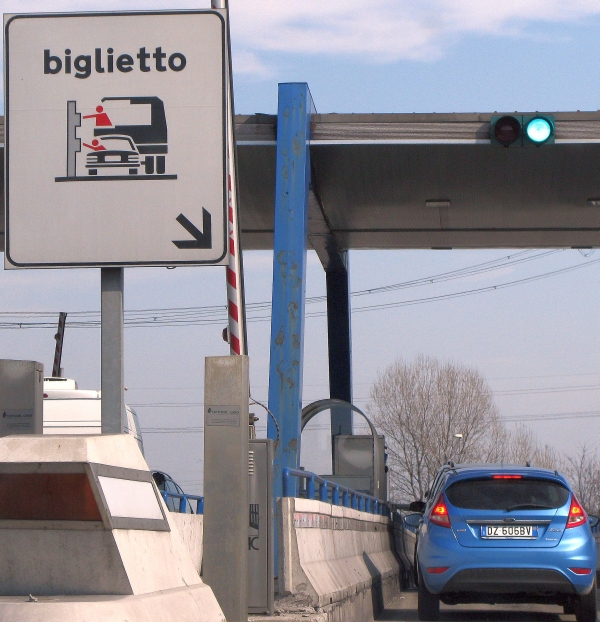
You must take a ticket when you enter the autostrada, and use that ticket to pay when you exit based on the number of total kilometers you have covered. DO NOT lose your ticket, or you will get charged for the farthest entrance point from your exit. If you want to budget for tolls, enter your route on www.viamichelin.com for an estimate.
When you exit the autostrada you must pay the toll in cash or by credit card. Do not go into the Telepass lane.
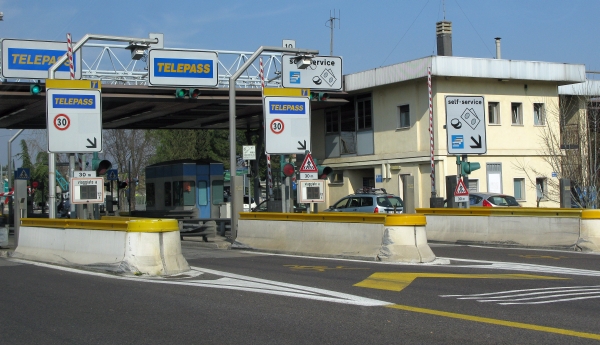
On a trip to Italy about 10 months ago, I accidentally exited the autostrada in the Telepass lane. Telepass users can zoom through the Telepass lane and then toll charges are sent to them on a monthly invoice. I realized my mistake too late, and since it’s not possible to stop in the Telepass lane to pay the toll (there’s nobody there to collect money and stopping would create an accident), I spent an hour on the phone once I arrived at my hotel, trying to figure out how to pay my toll. Without proof of exit location, the driver is issued a fine for what the toll would be from the entry point until the very end of the autostrada (the opposite of what you are charged if you lose your ticket after you enter; see above).
Green signs indicate the road is an autostrada
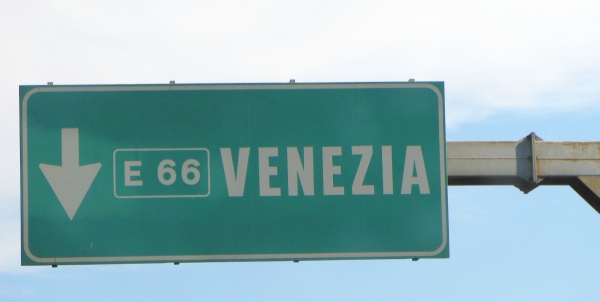
If you’re on a road indicated with green signs, you’re on an autostrada. If you’re not on an autostrada but are following green signs, they will lead you to the autostrada. If you’re on a road that looks pretty significant but the signs are blue, it’s not an autostrada — and it’s also not a toll road.
Pay attention to the speed limit when driving Italian autostrada
There seems to be a misconception that speed limits in Italy are high or that you can drive as fast as you want. Not so and be careful. Speed is monitored by cameras on the highways and tickets are issued automatically and sent to drivers (or car rental agencies) in the mail. Car rental agencies will add their own processing fee to any ticket you receive as a driver.
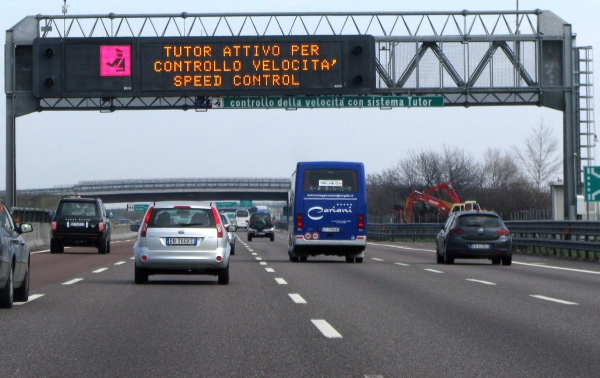
The further left you are, the faster you should go.
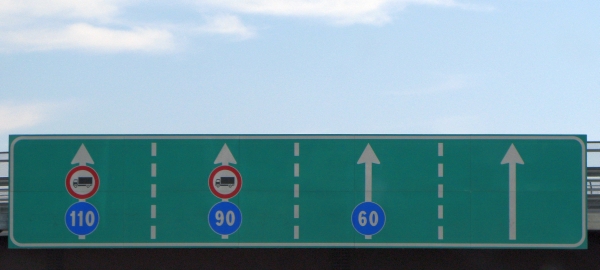
If you want to go slower or are not actively passing anyone, move to the right. If you’re hanging out in the left lane and not passing anybody, Italian drivers will often aggressively zoom right up behind you. It’s their way of telling you to move over. The blue signs with white numerals are minimum speeds for that lane. Maximum speed limit signs are red-framed circles, with black numerals on white background. Observance of these minimum speeds is extremely important.
Don’t miss the Autogrill
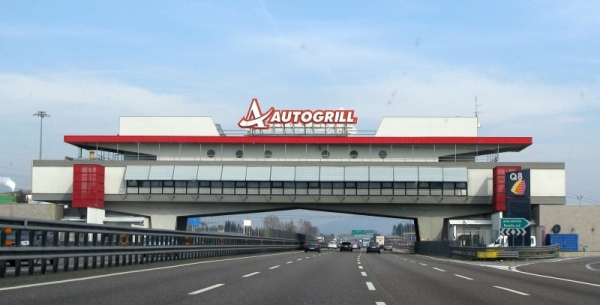
The Autogrill rest station is not an old boring highway rest stop. It has wonderful sandwiches, great coffee, freshly squeezed orange juice, and even cool little souvenirs. Oh, and you can fill the car with gas and use the restroom as well. When I drive on the autostrada I always look forward to my Autogrill stops – really. Here’s a photo of an awesome panino from one of my Autogrill stops, yum.
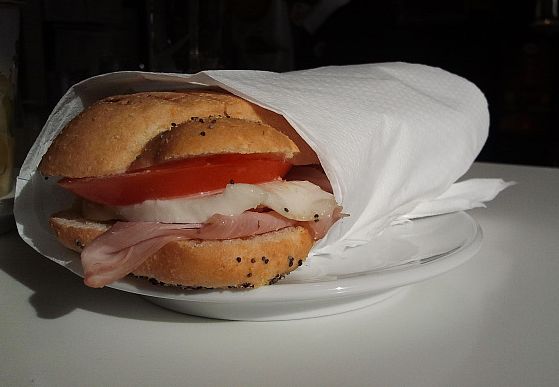
Getting fuel
Filling the car with petrol if you’re driving on the autostrada is pretty simple. The pumps are self-service (“fai da te”) and easy to use. Note that if you’re using a credit card, Italy has moved to a PIN number credit card system, so if your credit card doesn’t have a PIN, have a debit card ready just in case. I have been able to use my credit card at some petrol stations while others asked for a PIN and in that case I pulled out my debit card. (More on a money strategy for your Italy trip.)
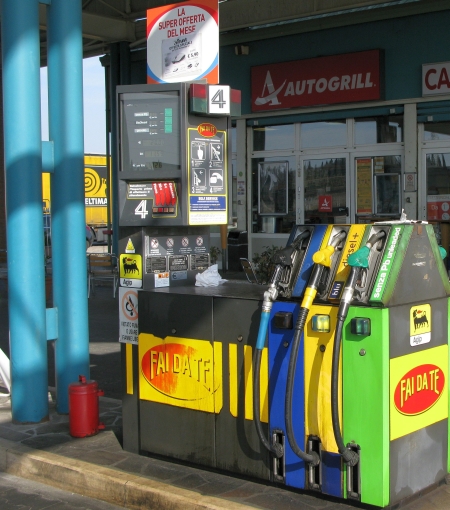
Look how easy it is: instructions with clear images and at this station (which was halfway between Milan and Venice) there’s even an English translation.
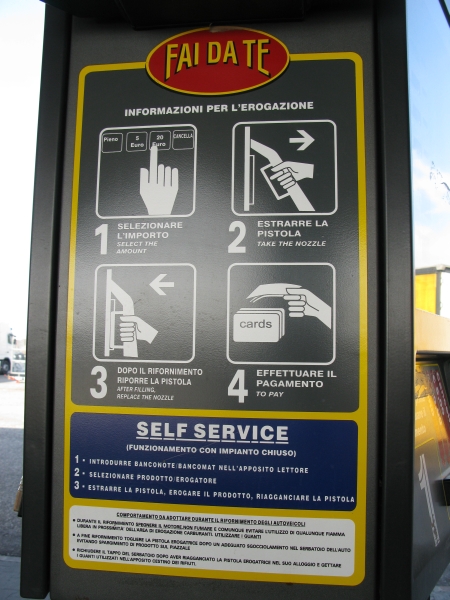
Brush up on your Italian road signs
Do your own research or read my post on Italian road signs so you know how to recognize a speed limit sign, a right of way sign and others, before you start driving in Italy. They may look different than what you’re used to, and these days if you get a fine, it may be snapped from a camera, mailed to your car rental agency, and forwarded to you with a processing fee (which in my case was just taken off my credit card along with car rental charges). Don’t expect signs to be in English; most road signs are just symbols or are in Italian like the sign below. This sign tells drivers that in case of fog, the speed limit is 40 kilometers per hour.
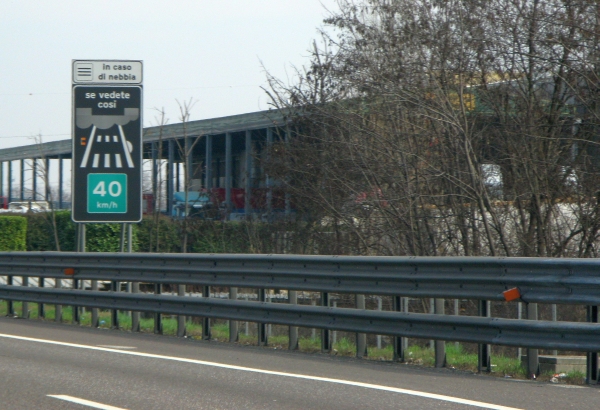
And finally, what everyone wants to know: Will I see a Ferrari?
Keep your eye out, you just never know!
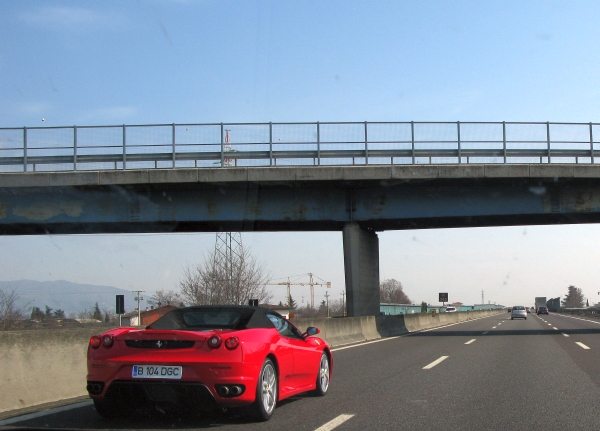
Note for UK residents: you can rent a toll device in the UK and bring it with you to Italy.
The company Tolltickets rents toll devices for both short term usage and long term usage. The company ships the device to customers in the UK or they can pick them up at Stop24 on the M20. The company also rents toll devices for France, Spain, Portugal, and Scandinavia.
All photos by Madeline Jhawar
